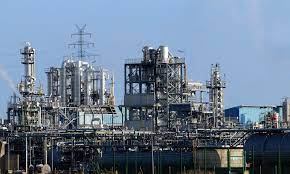Shell stated on Friday that, as part of its effort to lower its carbon emissions, it will close its oil refinery in Wesseling, Germany, by 2025 and convert the property to manufacture lubricant feedstock.
With a capacity of roughly 300,000 metric tonnes annually—almost 9% of the current EU demand and 40% of Germany’s need—Shell reportedly plans to transform the site’s hydrocracker plant into a production unit for Group III base oils, which are mostly used in engines.
Laptops 1000It is anticipated that this action will cut Shell’s operational carbon emissions—also referred to as Scope 1 and 2 emissions—by roughly 620,000 tonnes annually.
Shell plans to sell its refining and petrochemicals complex in Singapore. Shell’s goal is to reduce all greenhouse gas emissions to net zero by 2050, including emissions from fuels burned by customers.
The Wesseling complex, located in Shell’s Energy and Chemicals Park Rheinland near Cologne, will cease processing crude oil in 2025, while the Godorf refinery will continue to do so, the firm announced.
It is anticipated that the new Wesseling production facility will begin to operate in the latter part of this decade.
Laptops 1000The Godorf and Wesseling installations are part of the Shell Energy and Chemicals Park Rheinland, which can now produce over 17 million tonnes of crude oil annually, with Wesseling producing 7.5 million tonnes of that total.
Shell had previously invested in the Rheinland facility’s biomethane liquefaction plant and a 10-megawatt electrolyser, which are used to produce hydrogen with zero carbon emissions.
Shell has sold five refineries since 2020, shut down one, and turned another into a terminal.

















